The Best Online Dictionary for Language Learners: Google Image Search
If you're learning a language and looking for the best online dictionary, I've got an answer that might surprise you:
Google image search!
Whether you're looking for an online Spanish dictionary, French dictionary, German dictionary, Chinese dictionary, or an online dictionary for any language, Google image search would always be my first choice.
Let me explain why:
There is a huge problem with almost every single online dictionary you will come across. The translation is always wrong! Yep. Demand your money back! 😉
The Problem with Most Online Dictionaries
When you look up a word such as voiture from French, your dictionary may suggest “car”:
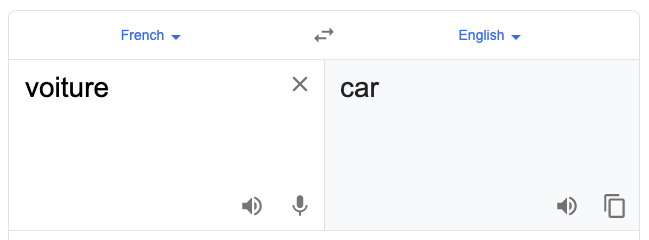
But voiture doesn't mean “car”. A voiture is “a wheeled motor vehicle used for transporting passengers, which also carries its own engine or motor…” which in English we happen to call a car. But it isn't a “car”!
“Car” is just a word, a set of letters. That voiture/car/coche/auto etc. thing is a concept.
Some online dictionaries, such as Google search, capture the idea that a word is more than a direct translation. Voiture is a concept with many possible translations:
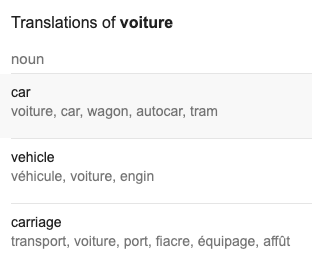
This is an important idea for learning languages. When you see a new word, which is spelt entirely differently from how it is in English, you may be tempted to just think yourself “Why do they make it so hard?? Why can't they just use the English word?”
Well, there is no direct relationship between an object and any particular word, even (gasp!) English words! No matter what the ancient Greek philosopher Plato might say about it.
OK, that may be an interesting philosophical discussion or whatever, but how can that help you learn a language quicker?
Stop Using English to Learn a New Language!
The main problem with using an online dictionary (and traditional dictionaries for that matter) is that you look up the word to read the translation.
This means that if you apply it to memory you always have to go via another unconnected language. If you memorise the word voiture you'll connect it with the English word “car” rather than the concept I outlined above.
This is NOT the way to speak fluently. When you hear a word you know, the thought process for most language learners is something like Ordenador… “Computer”…! Ah ok, I remember!
You translate one word to another word and then get the concept via the second word. Or vice versa when you are speaking the language yourself.
What Fluent Speakers Do
But fluent, and especially native speakers do not think like this! This is kind of thing that slows learners down into umms and uhs. That's because you have to go through twice as many words (native language + learned language) to be able to say the same thing.
“Dónde está el… What's the word for computer in Spanish?? Damnit, I learned this yesterday, it begins with an O I think…“.
Your entire flow and rhythm in speaking a foreign language is lost when you keep switching between your new language and English.
You should actually be asking yourself something like “Dónde está el… ¿Cómo se dice esa palabra? Si quiero mirar internet, entonces lo utilizo.. coño, cómo era?”. So, your entire thought process should be through the language; abandoning English entirely (even if you make mistakes). I'll come back to this idea another time, but back to the word itself…
When I hear “ordenador” or any other translation of the concept I'm familiar with, I associate it with the concept, not with the word “computer”. This takes a bit of practise at first, but it's not as hard as you think. It's all part of how we naturally learned words in our native language when we are growing up.
We should use the same approach for our second (or third etc.) language! But, instead of just saying “it takes a bit of practise”, I can actually offer one good way to get used to associating the word with the concept:
Google Image Search to the Rescue! It's the Best Online Dictionary!
Most of you may be familiar with http://images.google.com as just a quick way to get an image from the Internet to use in some document. But it has much greater potential than this.
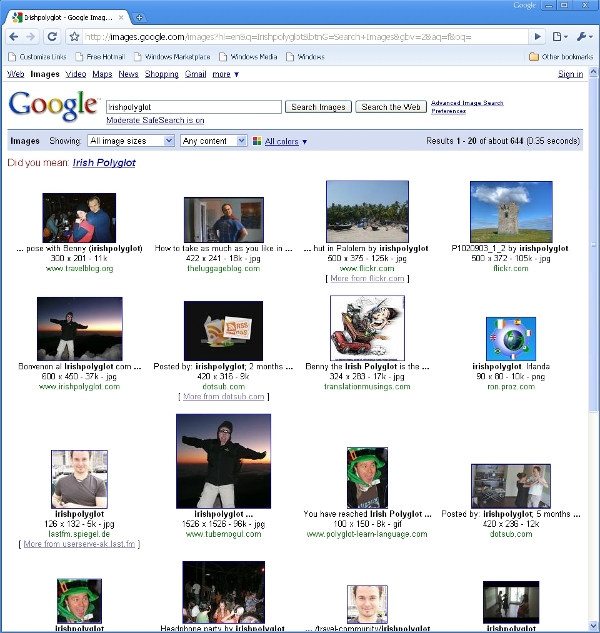
You can use Google's Image search as a dictionary. Try it for my examples above (voiture, ordenador). Or try it with any word you are learning!
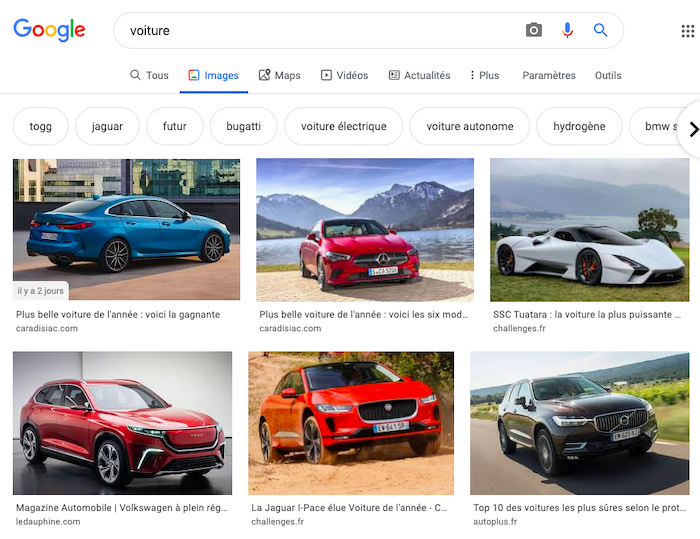
Obviously it gets trickier when looking up verbs that are hard to represent as images or emotional concepts.
On the other hand it does much better at representing specific words that your cheap pocket dictionary or even the best online dictionaries can't find.
How to Find Google Images for Your Target Language — Use the Right Search Engine!
When using Google image search as an online dictionary, note that you should set Google image's URL to the domain of the country that speaks the language you are learning.
This ensures Google doesn't think you misspelt the word, or if there is a false friend or brand name etc. in English with that word.
Here are the Google image sites you might need:
Note that Flickr is also an excellent resource for image searches and this can potentially be an even better online dictionary than Google images because of its well applied tagging system.
How I Use Google Images as an Online Dictionary
Let's say I want to find out what the Czech word “komár” means. as I did during my three month mission to learn Czech.
I'll look it up in Google Image (.CZ) and I see what it is, associate that word with the concept in my mind (not thinking about the English word).
I also apply memory techniques such as mnemonics and spaced repetition. When I hear the word later, then I will think of it quicker because I'm not slowing myself down with the English word.
Now Go Try using Google Image Search as an Online Dictionary!
Give it a try! Let me know if it works 😀
Of course, standard dictionaries aren't all that bad; I use them too all the time.
But remember that my point here is that you need to get used to NOT thinking via English!
If you must look the word up in a dictionary then after you see its translation, picture what the word represents and associate that with the foreign language word, not the English word with the foreign language word.
Give me your thoughts on this in the comments below 😀

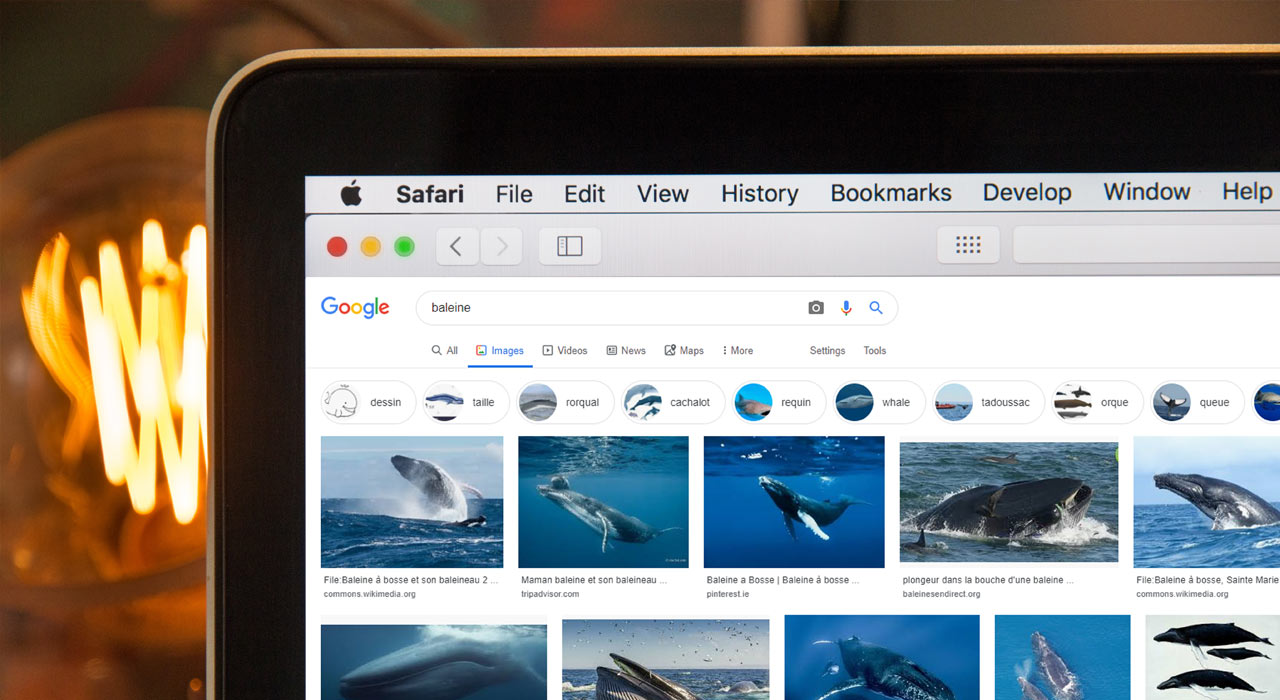
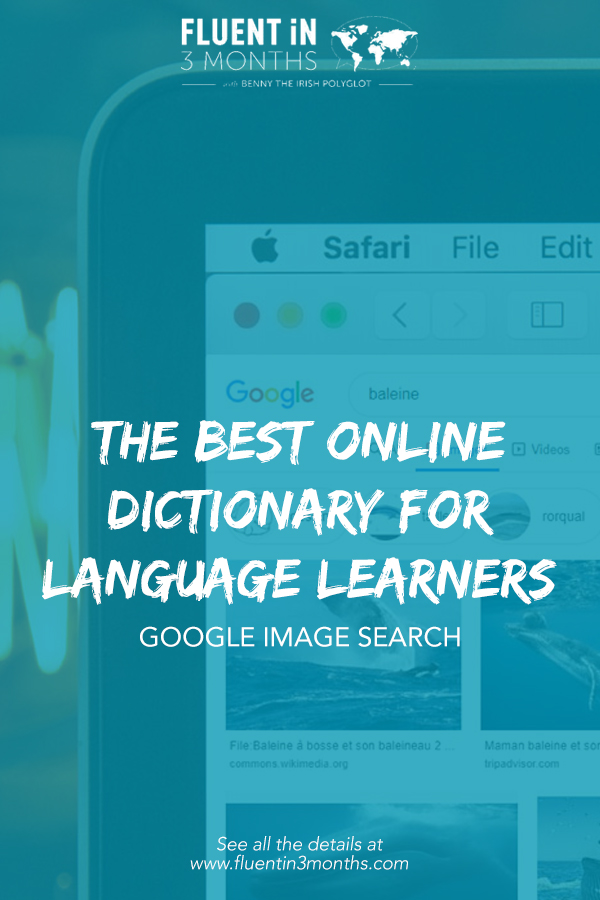

Social